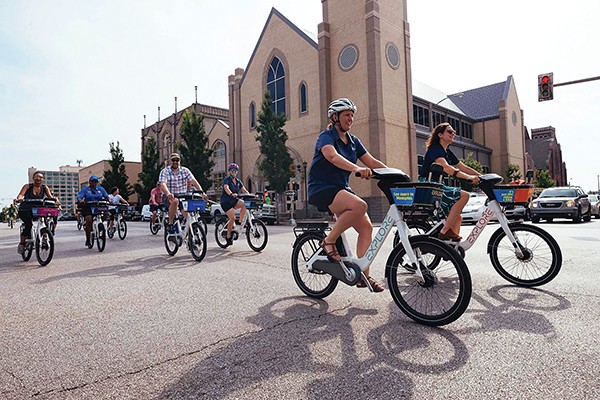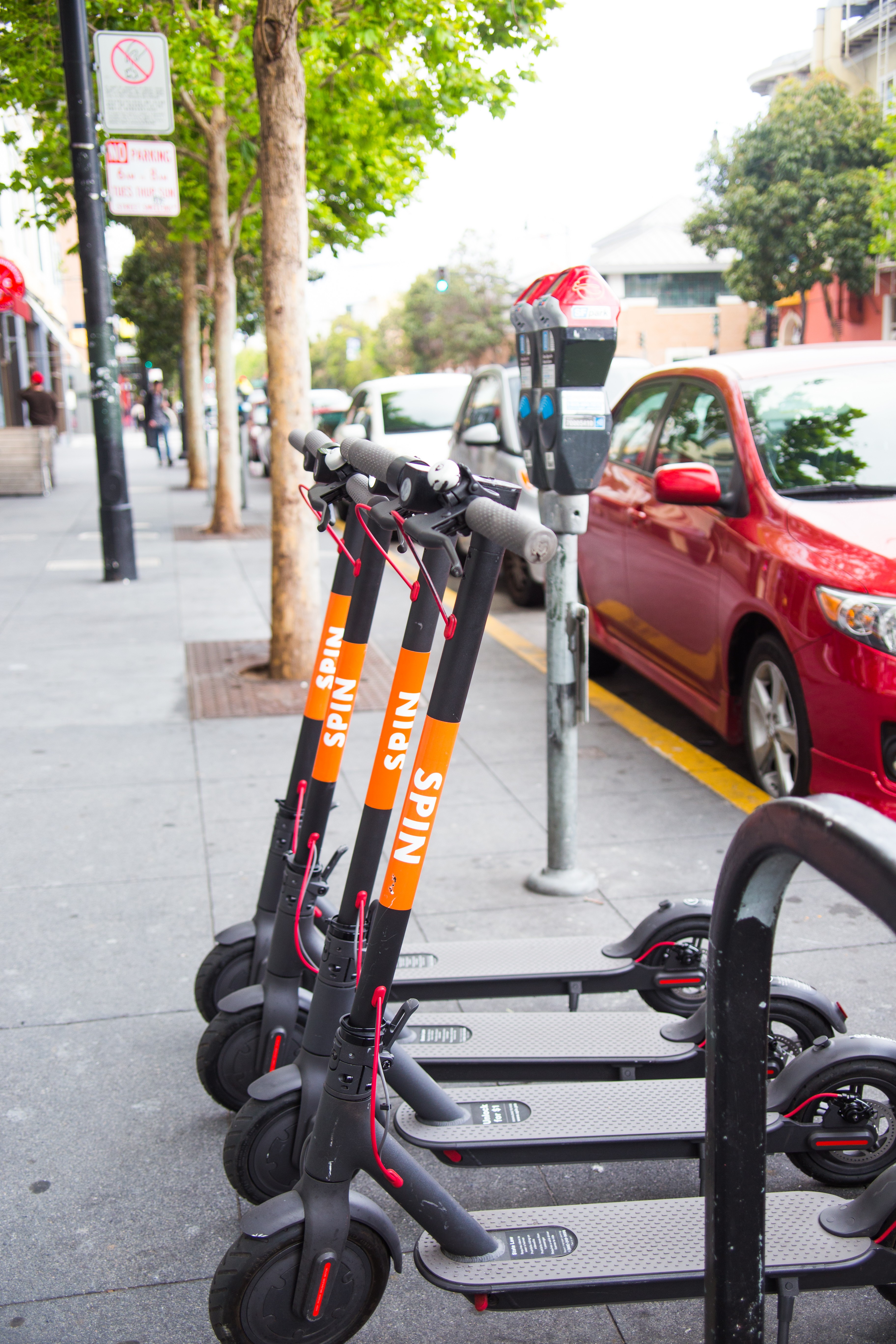 Explore Bike Share
Explore Bike Share
New prices, more bikes on the way.
Head of Explore Bike Share (EBS) said the influx of scooters to the city has presented some challenges for the bike share program, but ultimately, he sees both shared-mobility options as avenues to further improve connectivity in the city.
Executive director of the non-profit, Trey Moore said, when Bird scooter company was launched in Memphis last summer, his team was taken by surprise.
“I think we took sort of a wait-and-see attitude because we were all caught by surprise when scooters started showing up last June,” Moore said. “We were really intentional about getting Bike Share off the ground, and then all of a sudden, the scooters came from what seemed to be out of nowhere.”
Moore said scooters have potentially had an impact on bike share ridership, but “we could probably argue that bike share usage has had some impact on scooters, too.” He adds that it’s hard to quantify the impact scooters have had on EBS because of the program’s close launch dates.
Still, Moore said he’s excited about the way the city is “changing its attitude toward shared mobility” and the transportation opportunities they present for residents.
“At the end of the day, both programs working hand in hand certainly have made an impact on shared mobility in the city,” Moore said. “All of Memphis is benefiting from this usage. We’re starting to see habits changing and people are discovering how to use these new modes of transportation in ways that are convenient and benefit their daily experience.”
 Explore Bike Share
Explore Bike Share
Explore Bike Share executive director, Trey Moore
One thing that the introduction of scooters to the city has challenged the nonprofit to do is “evaluate how we deliver bike sharing,” Moore said. Because the bike share system is stationed-based, it is “not quite as nimble” as the dock-less scooters.
“We prefer our station-based model,” Moore said. “It’s cleaner, more organized, and more predictable. But, at the same time, scooters have challenged us from an accessibility standpoint. We’ve all been conditioned to want the instant gratification of immediately finding transportation. We want it as close and convenient as possible.”
To make bike sharing more accessible and the network more dense, Moore said EBS has gone from 56 stations when it launched last May to nearly 80 stations now. Some of that increase can be attributed to new stations, but Moore also said the nonprofit reduced the number of bikes at some stations and added them to new stations in closer proximity.
“It’s still not going to be a bike sitting at your front door, but it’s going to be a bike maybe a block away,” Moore said. “We’re hoping that’s added some convenience that wasn’t there when we first launched.”
The “biggest opportunity” for EBS, Moore said, is to make bikes available in new neighborhoods. Continuing to expand EBS’ footprint, will keep bike share “available and relevant to more Memphians.”
EBS opened two new stations Monday at Foote Park at South City, coinciding with the grand opening of the complex. The nonprofit also recently moved its headquarters from a warehouse in Uptown to the former St. Patrick Catholic School building in South City to further engage that community through education, neighborhood rides, and other outreach efforts.
“We’re excited about it because it really puts us in a neighborhood we believe we can have some impact in,” Moore said. “Everything sort of aligned for us. We needed a new space and we wanted to be in an area where we could have an effect on the bike culture.”
We're thrilled to support the official opening of South City both during today's celebration and moving forward with two new neighborhood stations (and counting!). #seemoreinmemphis pic.twitter.com/tyqKbDQ0w4
— Explore Bike Share (@ExploreMemphis) September 16, 2019
Bike Share Director Says Scooters, Bikes Can Work in Tandem
When the Hampline is completed in November, EBS will open eight new stations in Binghamton to connect residents to the Hampline, Shelby Farms Greenline, Broad Avenue Arts District, and Overton Park.
With this expansion, comes additional opportunities along the Greenline, where neither bike share nor scooters are currently stationed, Moore said.
As EBS expands into new neighborhoods, Moore said a critical part of that work will be continuing to engage with community organizations, who help introduce residents to bike riding and EBS. The partnerships with community organizations are “vital to getting people to try bike share for the first time or try riding their own bike for the first time in a while,” Moore said.
Moore said one of the main challenges when introducing new stations into new neighborhoods is the heat.
“Well we can’t do it in the middle of the summer,” Moore said of launching new stations. “The Memphis heat and humidity certainly impacts our ridership. That deters a lot of riders. So the timing of our launch in neighborhoods is key.”
[pullquote-1]
When expanding into new neighborhoods, Moore also said it’s crucial to consider the surrounding infrastructure and place stations near “safe, low-stress streets.”
Moore said he’s excited about what the city is doing to improve biking infrastructure, noting the near completion of the Hampline, the new bike lanes on MLK and Mississippi Boulevards, and the addition of bike lanes on Highland north of Central, which the city recently began work on.
“All of these opportunities are going to make bike share more relevant and accessible to many more in the community,” Moore said. “But there’s still a lot of ground to make up for when it comes to creating safe infrastructure.”
City officials have said in the past that portion of the fees collected from each of the shared-mobility operators in the city will also go toward improving and expanding the city’s bikeway network. During the first year of the shared-mobility program, city officials anticipate collecting about $500,000.
 Facebook
Facebook  Spin
Spin 